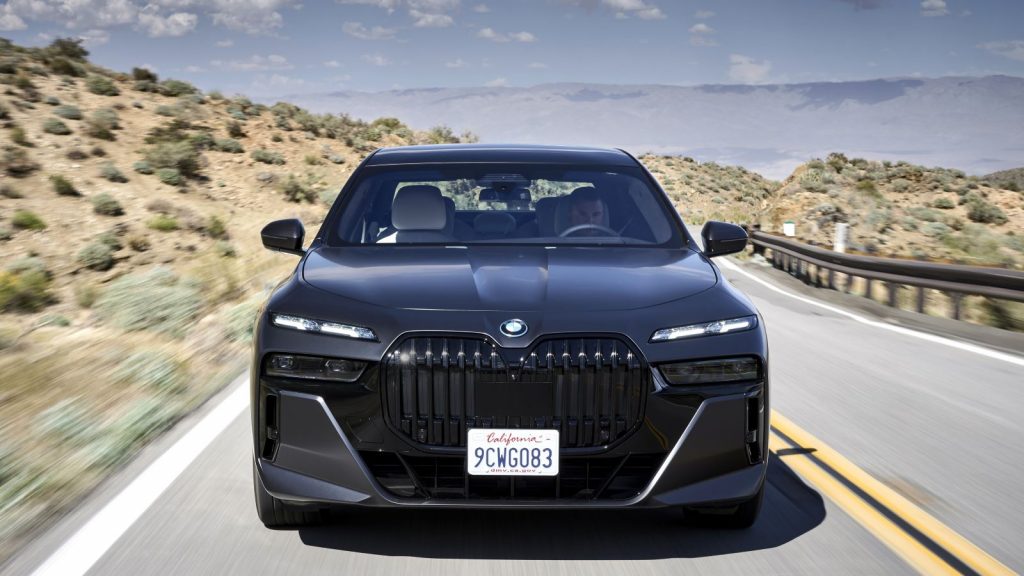i7 is not the most affordable or aesthetic car of the year. But BMW’s limousine gains our approval as the best car of 2022 because it normalises the battery powertrain concept for long-distance travel.
Electric cars are proliferating, but range anxiety remains an issue – whether a case of selective bias or real recharging discrepancy. At an extraordinary price (R2 825 000), BMW’s i7 represents the normalisation of driving an electric car. The deal is that you can drive 625km on a single charge.
No ad to show here.
Industry analysts and customer insight experts have debated the magic number to cure range anxiety. Would it be 400-, 500- or 600km? It happens to be the middle one: 500km.
The problem with bigger EVs
Battery capacity can’t keep scaling indefinitely. Bigger batteries, with better energy density, weigh a lot more. And although a 200kWh battery would give most luxury electric vehicle platforms huge range, the weight and packaging issues are too problematic.
Packaging a battery pack of around 100kWh, is the most viable apex energy-density solution. And that’s what BMW’s done with i7.
There are other brands with similarly sized battery packs. All predictably German: Audi (eTron), Porsche (Taycan) and Mercedes Benz (EQC). But BMW’s engineers have done as they always have: leaning into the technical issues and finding proper solutions.
This electrically powered BMW limousine is different. From its electric motors to the battery chemistry, packaging and cell structure.
The auto doors are weird
There are elements of the i7 design which are too gimmicky. These include the automated doors and some odd cabin trim, which is at odds with BMW’s traditional luxury car aesthetic. But as an engineering breakthrough, i7 is significant.
BMW’s been the German car company most reticent to embrace full electrification across its product portfolio. This is quite ironic, considering BMW’s industry leadership nearly a decade ago with i3. Despite its caution regarding electric vehicle proliferation, BMW hasn’t stalled the incentivisation of its considerable internal engineering resources.
There is a sense with i7, that BMW engineers were briefed to create a technology demonstration product for the brand’s electric vehicle expertise. But without the risk of a potentially failed business case. It’s smarter to debut expensive technology in a lower volume model, with customers willing to pay a premium, than in a volume model, where fixed cost surge with scaling.
What i7 proves
There is a cost shadow to cars such as i7. They represent the significant expense of equalling petrol and diesel driving range, with battery power. And with battery production prices increasing for the first time in more than a decade, you can forget about an affordable 500km+ electric vehicle, in the near term.
But still. For the select few, an attainable 500km+ electric vehicle is now available in South Africa. And quite fittingly, it is a BMW. The brand that delivered proper luxury electric mobility to South Africa with i3, back in 2015.
Seven years later, there is a much larger and more accommodating electric BMW in i7, with five times the driving range. Progress? Yes.
